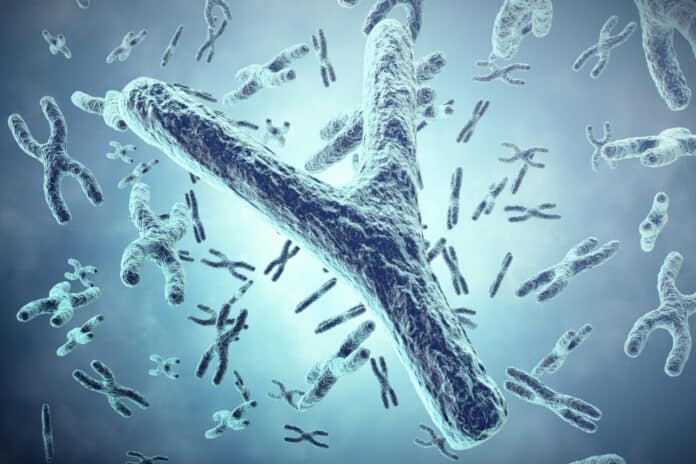The process of fully sequencing human Y chromosomes has provided valuable insights into the genetic makeup and diversity within the male population. By comprehensively analyzing the DNA of 43 human Y chromosomes, researchers have unlocked a deeper understanding of the genetic variations and patterns present in these specific genomic regions.
In studying human genes, the Y chromosome, one of the sex chromosomes, was not given much attention for a long time. It’s thought this chromosome, which determines male traits, used to be similar to another chromosome long ago. However, the Y chromosome lost many genes over millions of years, becoming minor. Some scientists even think it might disappear entirely in the distant future.
Charles Lee, a scientist, explains that the Y chromosome is hard to study because it has many repeating parts and needs to carry more helpful information. However, a group of researchers fully understood the Y chromosome of one person from Europe. Another team, led by Charles Lee, studied Y chromosomes from 43 men, some from Africa. These studies helped to learn more about Y chromosomes, how they differ among people, and how they might relate to specific health problems.
Scientists are now learning much about the Y chromosome and how it affects our bodies and health.
Scientists study our genes using a method that breaks down DNA into tiny pieces. Then, they put these pieces together to understand the whole picture of our genes. But this method needs help with tricky parts of our DNA, like the Y chromosome.
The Y chromosome is essential for males and carries information about male traits. However, this Y chromosome is often ignored because it’s challenging to study. The standard method needs to be revised for it. The understanding of the Y chromosome, including the reference version, is only about 90% complete because of its complex and repeating parts.
But now, scientists at JAX and other collaborators have done something important. They looked at 43 different Y chromosomes from various people. It helped them see how the Y chromosome is extra in each person. They discovered that the Y chromosome has many differences in size and structure. Some parts are flipped around compared to the rest of the genome.
This study is a big step forward in understanding the Y chromosome and how it varies between people.
Pille Hallast, first author and JAX Associate Research Scientist said, “Having fully resolved Y chromosome sequences from multiple individuals is essential to understand how this variation can affect function. The degree of structural variation between individuals was a big surprise, even though the nucleotide sequences within the Y chromosome genes are comparatively conserved. The variable gene copy numbers in certain gene families and extremely high inversion rates are almost certain to hold significant biological and evolutionary roles.”
Scientists know little about how the Y chromosome affects men’s health. But two new studies have found. They found that the Y chromosome might play a role in making certain cancers more aggressive in men.
In one study, they found that tumors without the Y chromosome could hide from T cells better. These tumors had more dysfunctional CD8+ T cells and responded better to certain treatments that help fight cancer, called anti-PD1 treatments. It indicates that the Y chromosome might be necessary for fighting cancer and staying healthy in men.
The research leader, Lee, said, “Research is emerging that shows proper Y chromosome gene function is incredibly important for the overall health of men.Our study enables the inclusion of the full Y chromosome in all future studies when sequencing male genomes to understand health and disease.”
In conclusion, the complete sequencing of 43 human Y chromosomes has provided researchers with insights into genetic diversity, ancestry, and potential health implications. This effort has expanded our understanding of the male-specific genetic landscape and its broader impact on genetics, anthropology, and medicine.
Journal Reference:
- Rhie, A., Nurk, S., Cechova, M. et al. The complete sequence of a human Y chromosome. Nature. DOI: 10.1038/s41586-023-06457-y.
